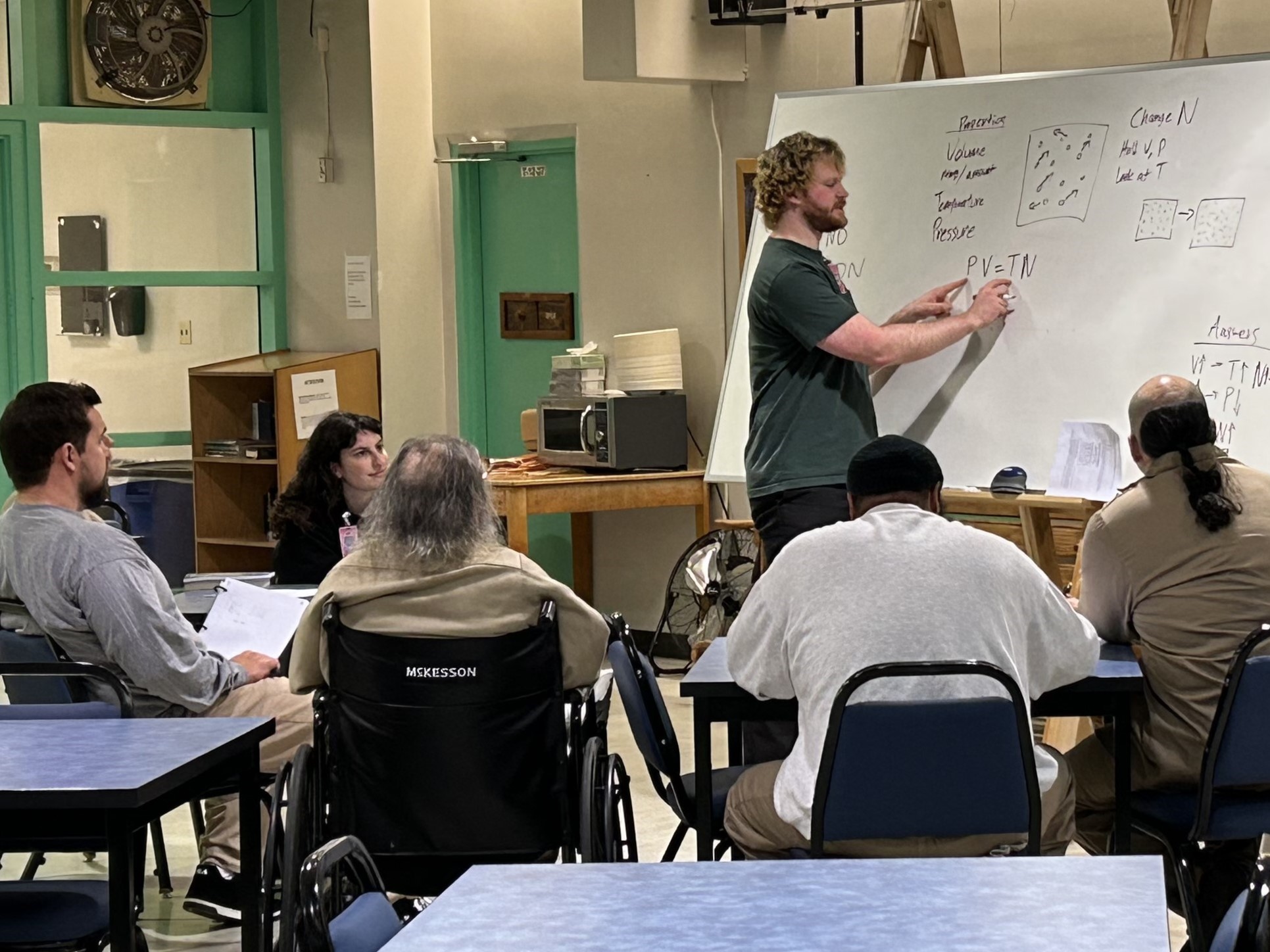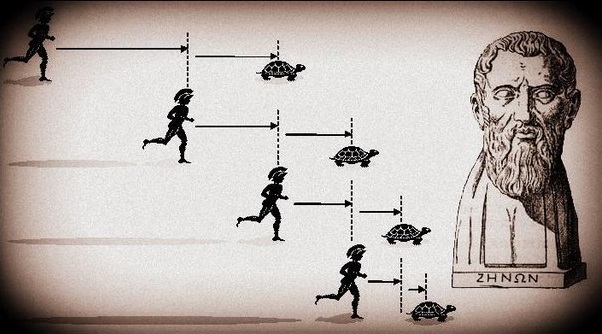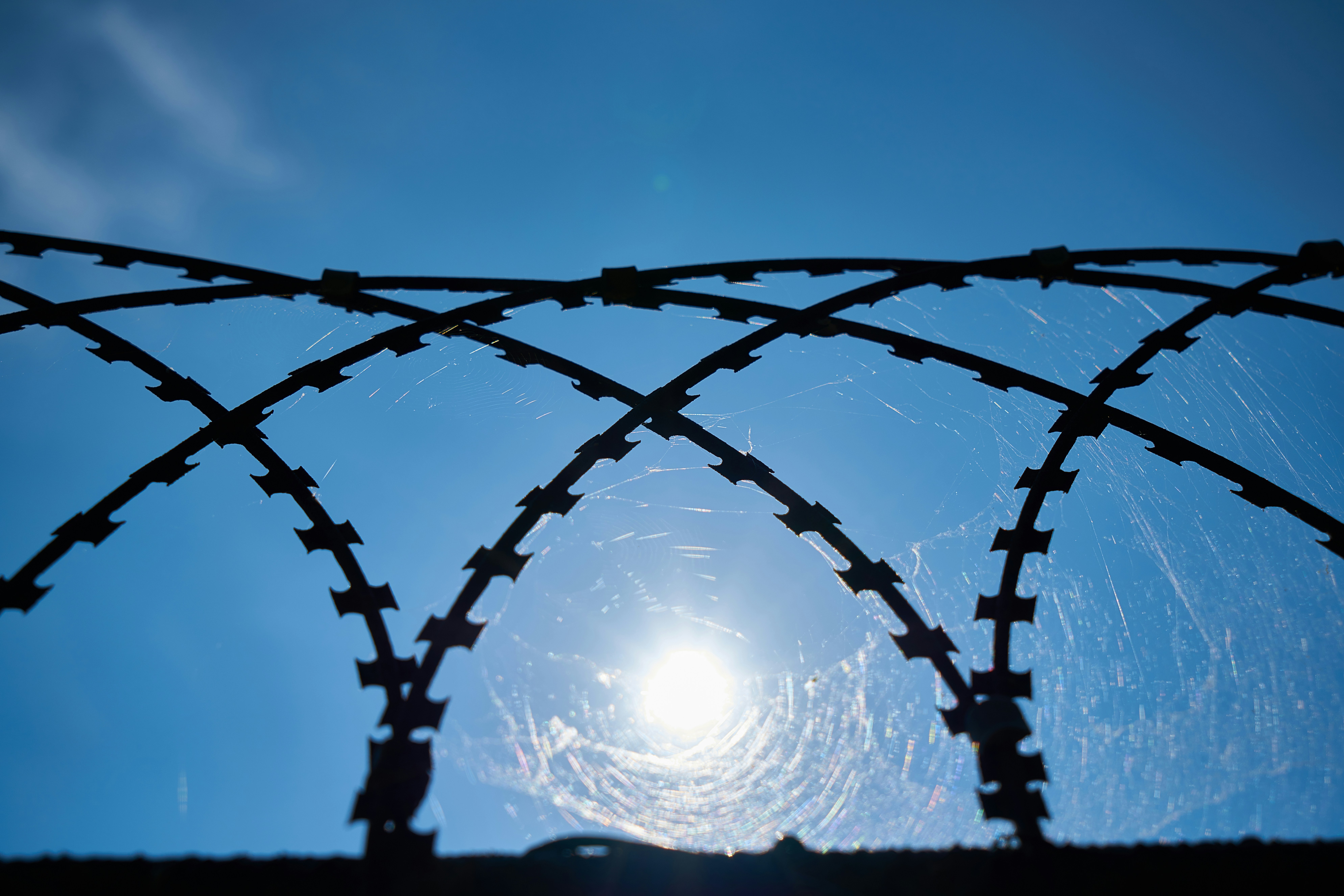
The PMP began in 2015 as an in-prison program, not unlike the math circles we hold today. The circumstances were a bit funny, but the story goes like this: my first mentor was Luisella Caire. At the time, she was a professor of calculus for the Polytechnic University of Turin, in Italy. Rewind a bit to the year 2014, where Luisella and I were sending letters across the ocean from Italy to my little concrete box and back to Italy.
I was so in love with numbers, and I was soaking up mathematics faster than you could throw it at me. Luisella was sending me books and other materials on the topics of my studies and, also, on number theoretic topics. Not only that, but she was exposing me to mathematical culture and history by sending me journals from the Mathematical Association of America (MAA), which also contained a glimpse into the math community. But the prison rejected so much of the material because it was not brand new, nor sent from a trusted vendor, like Barnes and Noble, Amazon or the actual publisher.
Universities could not send me books, nor could I receive the textbooks sent by the authors themselves! Every book was sentimental to me because they came from Luisella or her husband Umberto Cerruti, often with handwritten dedications inside. Some of those were even their own personal textbooks from many years past! And because of this, every rejected book or publication was immediately sent to my mother, who would then place it inside the trunk of her car. It wasn’t long before her trunk was completely full of wonderful and glorious mathematical materials that I would never get to see.
This was around the time when I was about to finish a program that had helped me to cultivate all the transformative growth that I had been experiencing. Once I graduated, I would have my choice of which correctional facility I was moved to, and I had my heart set on a specific institution with none of the dangerous internal politics. In one of my letters, I had told Luisella something to the effect that “I’m going to move to my new institution, infiltrate their education department and start a math program with a library full of all the math books that had been rejected.” We started brainstorming a math program, and when the time came for me to move, I set our plans into motion.
As soon as I arrived at my new institution, I started working with the admin to start this math program. By 2015, I was sitting down in an office with the staff member who helped set everything up, all the way down to the scheduling and logistics. As he sent the last email before the launch of the math program, he asked:
Staffer: What are you going to call this program?
Me, having considered everything but this: Do I have to give you the answer *right* now?
Staffer: Yes… Right now.
I thought of it for a moment, and the words just fell right out.
Me: The Prison Mathematics Project!
Staff, grunting approvingly: That’s good.
And that was how the PMP was born!
The PMP meetings started as math circles led by me. I taught self-contained topics meant to convey the beauty I see in numbers. I gave them history around every topic, with stories meant to share the culture of math with the group. Every meeting started with a sequence on the board, meant as a challenge for whoever wished to accept. I would walk in, write the day’s sequence, begin my talk, and every individual mind began firing on all cylinders.
It wasn’t long before we got the much-dreamed library of math books, which everyone could now use! But something else was starting to happen too. People who never would have spoken to one another before began to stop and say hello to each other on the way to their daily appointments. The PMP became an extension of the math community behind prison walls! Even in such a place, the human connection that occurs from a shared love for numbers—no matter how different the skill level—builds community values within men who had never before known what it feels like to belong to a healthy community.
We began hosting events in 2016. One year later, we had our first major Pi Day event with my biggest role models: Luisella Caire, Umberto Cerruti and Gary Gordon, all under the same roof. It was magical.
We continued this until Covid, until the doors of every prison became closed to the outside, and all educational programming came to a screeching halt. It appeared that PMP was no more, but in actuality, I had decided to take the PMP into nonprofit status upon my projected release date n 2033. The red tape and inconsistencies inside prisons made it too difficult to proceed from behind the walls myself, and I voiced this in an interview with Marta Cerruti, the daughter of Luisella and Umberto.
In the meantime, I published a paper, and my story began to get some media coverage. It wasn’t long before I received an email from someone named Walker Blackwell. He proposed that we collaborate to start the nonprofit PMP now and then, in an effort to help prisoners learn mathematics uninterrupted, despite the limitations of Covid. Because my transformation was so successful, we wanted to model this new version of the PMP after the most impactful contributors towards my rehabilitation.
We wanted to first act as a beacon to prisoners who had a love for numbers, regardless of skill level. Next, we planned to offer them mentorship. In the same way I had Luisella and Umberto guiding me during my first steps into the world of math, we would pair each of our participants with a mentor from the math community. Finally, we would share with them the wonderful community and culture that exists around this common passion we have for numbers. Thus began the PMP as you see it today.



